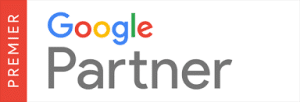It’s no secret that the pandemic has affected the way consumers shop, both in-person and online. The Census Bureau’s Annual Retail Trade Survey (ARTS), which produces national estimates of total annual sales, e-commerce sales, and gross margins of U.S. retail businesses, among other things, reported that e-commerce sales have increased by 43% in 2020 compared to 2019, highlighting the importance of a retailer’s online presence in its ability to generate revenue now more than ever.
This ability can be largely based on the effectiveness of both search engine optimization (SEO) efforts and the paid search strategy of a retailer’s website. When targeting keywords to appear in search results, both SEO and pay-per-click (PPC) play a role in capturing traffic and clicks to increase conversions and improve the return on investment (ROI). Why is it then that these essential cornerstones of a website’s marketing strategy often operate separately and siloed from one another?
There are many benefits to taking a holistic approach to your online marketing strategy. Let’s examine the differences between SEO and PPC and what can happen when organic and paid search work together.
SEO VS PPC
When a search is performed, a search engine results page (SERP) delivers both organic page results driven by SEO strategies, and paid search ads sponsored by websites trying to appear for the same targeted keywords. Though each has the same goal in mind, they differ in their approach and measurement of success.
Paid Search Strategy
Paid search results are usually the first things seen on a SERP as they are listed at the top of the page. When it comes to PPC advertising, advertisers target certain keywords and place bid amounts they’re willing to pay each time one of their ads is clicked. Based on these amounts and bids from competing advertisers, a website’s paid search ads are ranked and shown in the ad section of the SERP.
The effects of ad spend can be seen immediately, providing strategic keyword performance data that can be used to tailor your paid search strategy. It’s important to remember PPC performance is tied to ad spend, and data and benefits of paid search are turned off when ad campaigns are not running.
Organic Search Performance
SEO performance is based on creating quality content and optimizing pages to establish page and domain authority. Competitive on-page optimization along with efficient technical SEO best practices work to benefit a page’s organic ranking and clicks.
This also means that, unlike with PPC, organic search strategy is affected by changes to the Google search algorithm, which can happen often and at any time. Based on an algorithm update, a site may need to make small or even drastic changes to its SEO content strategy to adapt and maintain organic traffic.
Though the effects of SEO best practices may not be as immediately noticeable and may take from weeks to years to help establish a page, once they start to show good organic performance, the benefits tend to be solid and longer-lasting.
How to Make Organic and Paid Search Work Together
Understanding some of the effects that SEO and PPC can have on each other highlights different ways that organic and paid search can work together. There are data and strategies that both channels can share to help make the most of a site’s online presence and marketing strategy.
Dominating the SERP
Having ads and organic search results in the same SERP is a good thing. With rich result features taking up more space on the SERP, including featured snippets, quick answers, People Also Ask, map packs, and more, vying for the top rank spots has become more critical to a site’s success. In some instances dominating a SERP with both ads and top organic rank positions will not only show your own site more, but it’ll also push competitors down that page while keeping your listing above the fold, before a user would have to scroll to see more results.
Saving Money with Keyword Synchronization
Optimizing content for organic search can also improve the relevance of the content for PPC, which can decrease ad costs and lead to better ROI.
As previously mentioned, PPC campaigns have access to quick feedback for keyword performance that simply isn’t in the nature of organic search efforts. The paid search channel can share high-performing keywords with SEO to help optimize the target pages with those keywords and help improve organic rankings and visibility.
If all goes well and organic performance improves for those keywords, that information can be shared with paid search, who can then scale the ad campaign accordingly for maximum efficiency.
Remarketing
A key performance indicator (KPI) for organic search is session data and getting users to visit your site. It is understood that there is a correlation between returning visits and the likelihood of conversions when compared to new visitors. If those initial new visits do not turn into conversions, it’s not really in the realm of SEO to be able to specifically appeal to those visitors and bring them back.
This is where paid search efforts can come in and target those visitors for remarketing, which is the paid search strategy of serving targeted ads to users who have already visited or taken an action on your site. Encouraging these users who have already shown interest in your site tends to have both a higher clickthrough rate and a greater chance of conversion.
Improved Page Speed Performance Can Yield Better Paid Search Performance
In its efforts to encourage site owners to improve their page load times, Google has released algorithm updates making mobile speed score a ranking factor. While this isn’t in the scope of a paid search team’s operations, they certainly are affected by it.
Although SEO does focus on effective on-page content strategies and optimization, it also works to improve the technical aspects and efficiency of a site, including factors that affect its page speed metrics. By improving page load times using tools and reports provided by Google, like Core Web Vitals, the organic search team can work with the development team to make technical changes that also positively affect the performance of paid search campaigns.
Connecting Organic and Paid Search for Success
The best time to combine the efforts of SEO and PPC is today. Instead of asking which of the two is better, the goal should be to recognize the unique advantages of each and find ways to combine both channels.
The effect of combining Organic and Paid Search is greater than the sum of its parts and we should continue to strive for holistic approaches to online marketing strategies. When SEO and PPC work together, it benefits our site performance and improves the never-ending quest to give users the best search experience.




